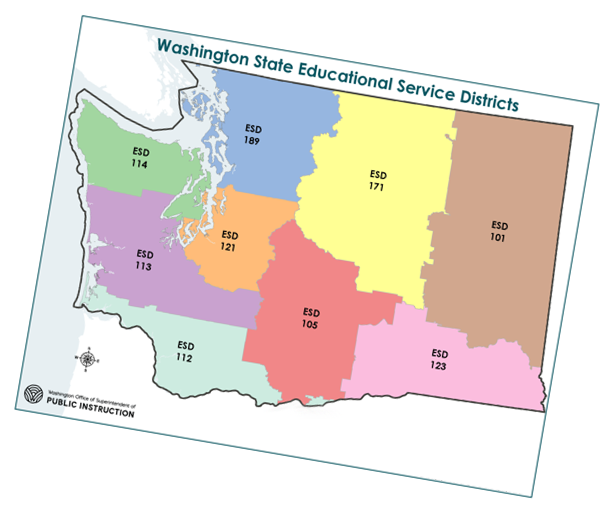ISB Education Prepares Teachers for New Realities of K-12 Learning Amid Pandemic
The coronavirus pandemic has had a drastic impact on K-12 education. In response, ISB Education stepped up with a series of virtual workshops to provide much-needed support for student learning. Since March, more than 500 teachers and principals representing every educational district across Washington state have attended our “Systems Are Everywhere” workshops.

The COVID-19 pandemic has had a drastic impact on K-12 education. In response, ISB Education has stepped up with a series of interactive virtual workshops to provide much-needed support for student learning amid the pandemic.
Since March, more than 500 educators representing every educational district across Washington state have attended ISB Education’s “Systems Are Everywhere” workshops. More of these popular workshops have been developed for fall and winter.
“School districts are looking for assistance with distance learning and incorporating science, technology, engineering and math (STEM) into their lesson plans,” said Caroline Kiehle, who co-leads ISB Education. “In early March, we realized preparing our educators for a new reality of teaching and learning was a critical need, and we were well positioned to provide these important resources. Our education team is acting nimbly to teach K-12 educators how to build systems thinking into their science units.”
The teachers participated in engaging learning activities and developed plans to translate their experiences with their own students. Additionally, 34 scientists, engineers, and other STEM professionals interacted with the teachers to discuss how systems thinking plays a role in science and in science classrooms.
In total, the workshops resulted in about 2,000 learning hours for educators that will impact tens of thousands of students across the state.

“The participation and feedback we’ve received from educators has been tremendous,” said Claudia Ludwig, who co-leads ISB Education. “We tailored our workshops — one for elementary educators and one for secondary educators. Both allow participants to explore systems thinking, COVID-19 science, crosscutting concepts from Next-Generation Science Standards, and STEM careers.”
Educators are encouraged to participate in the ISB Education workshops as a team — for example, a whole grade level across a school district, a whole science department from one school, etc. — to help provide support across entire schools and districts, not just to individual teachers.
The feedback from participating teachers has been overwhelmingly positive.
“I realized as a science and engineering teacher I can impact students in ways that may not be apparent today (or tomorrow), but sometime in a student’s life she will remember an experience or an encouraging comment, and choose a career path in a STEM field. The conversation with the STEM professional was energizing.”
“This course was wonderful! I loved the opportunity to have a scientist in our breakout room to ask questions.”
“You were all super organized and well-versed on what you were teaching! I also learned what it feels like to be a student in a Zoom class, and I will use that with my own students.”
ISB Education is able to offer these important workshops thanks to funding by our local Educational Service District via the ClimeTime program, which supports teachers across the state to engage students to develop their scientific literacy with the Next Generation Science Standards.
“These workshops are in demand and are clearly providing beneficial training and information to educators who are facing a new classroom reality,” said Kiehle. “We are thankful for the funding we have received to provide these resources, and we welcome all financial support that will enable us to keep providing these resources.”


